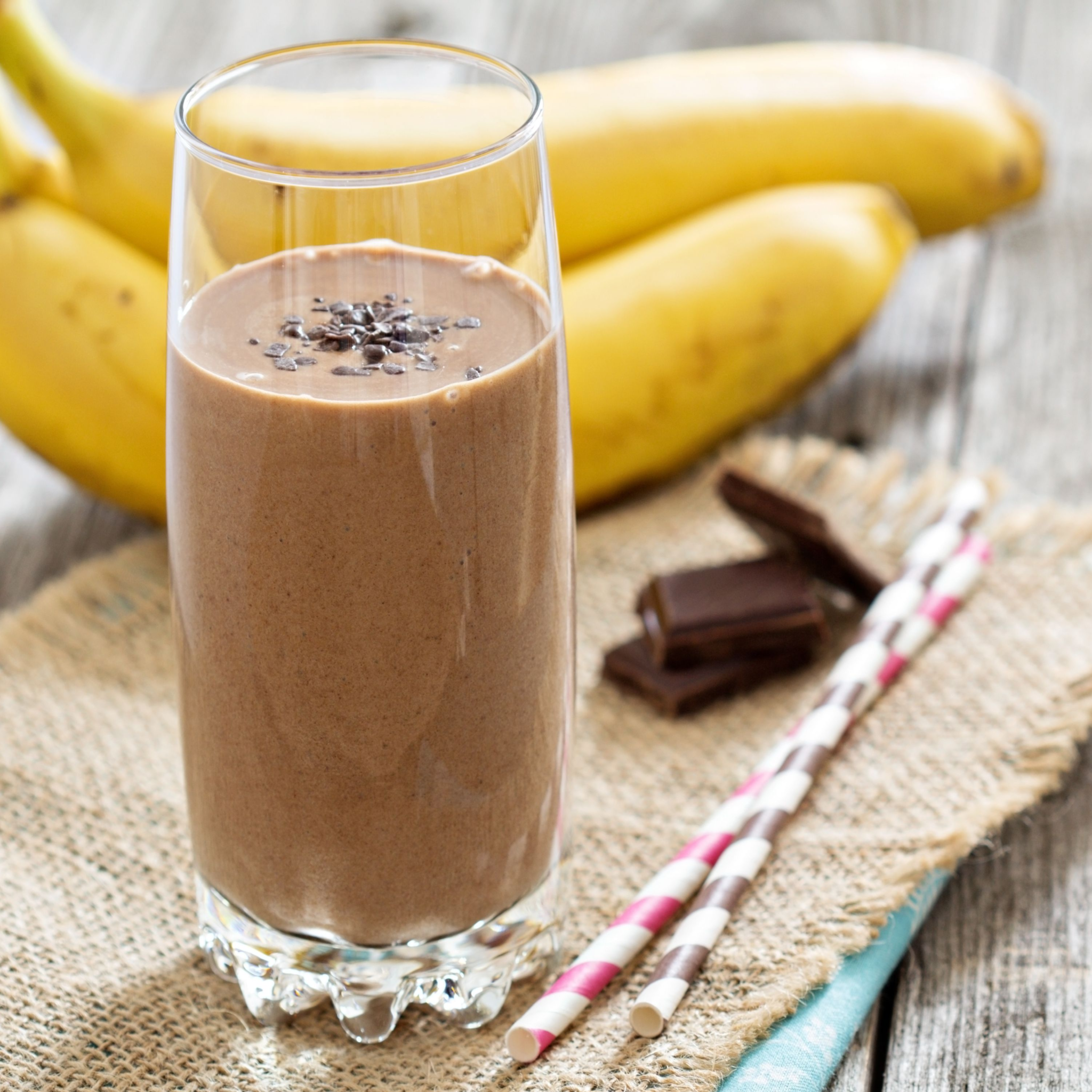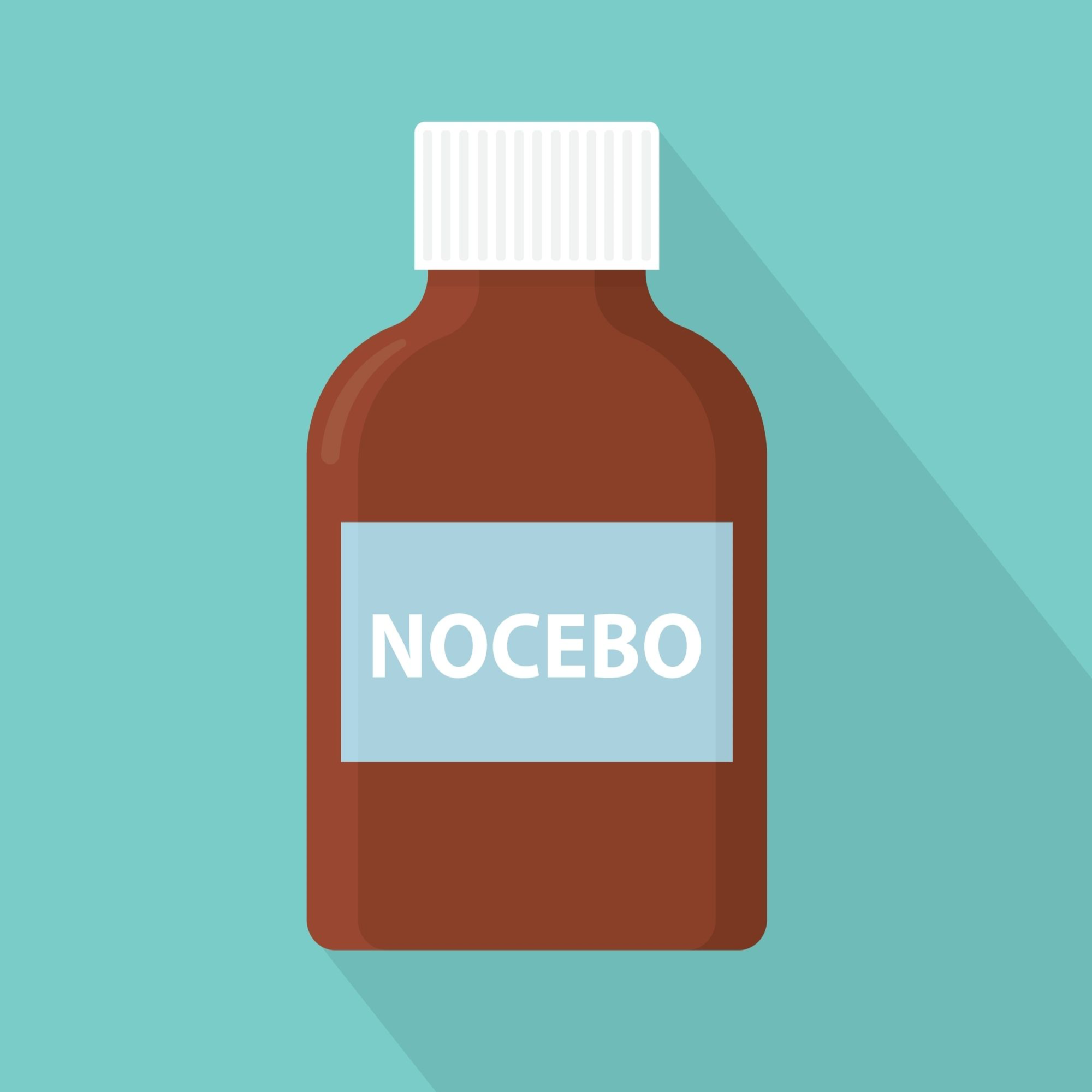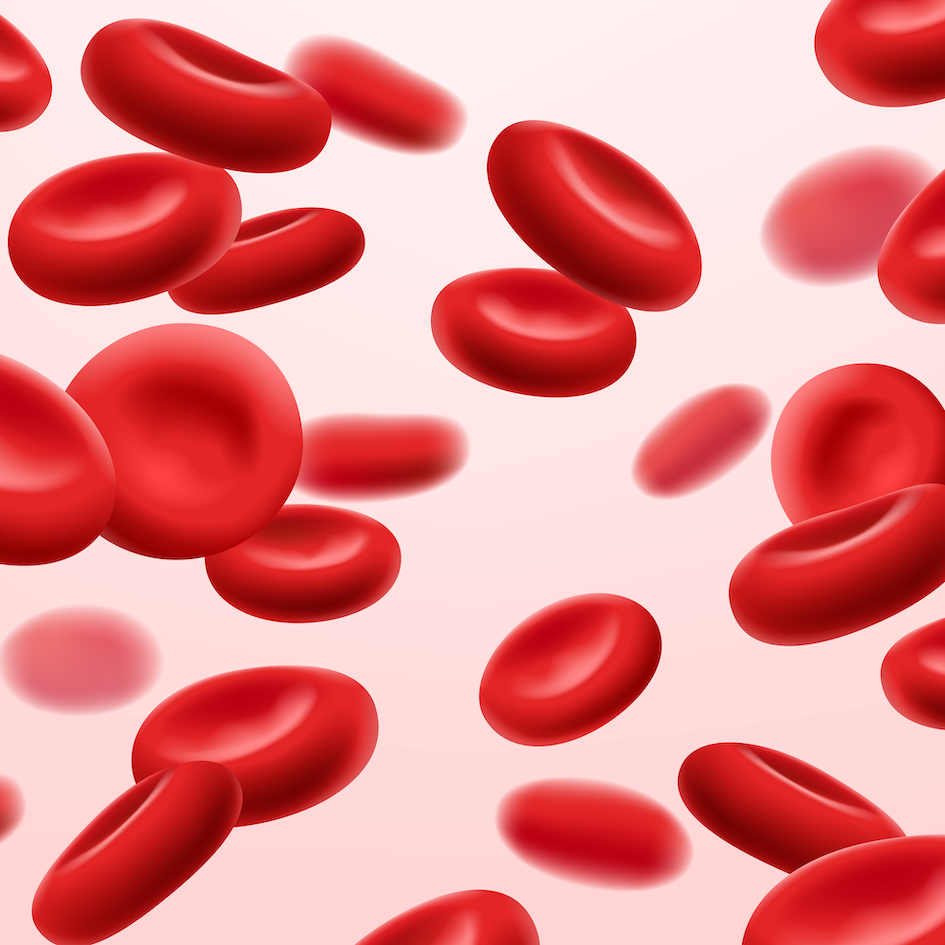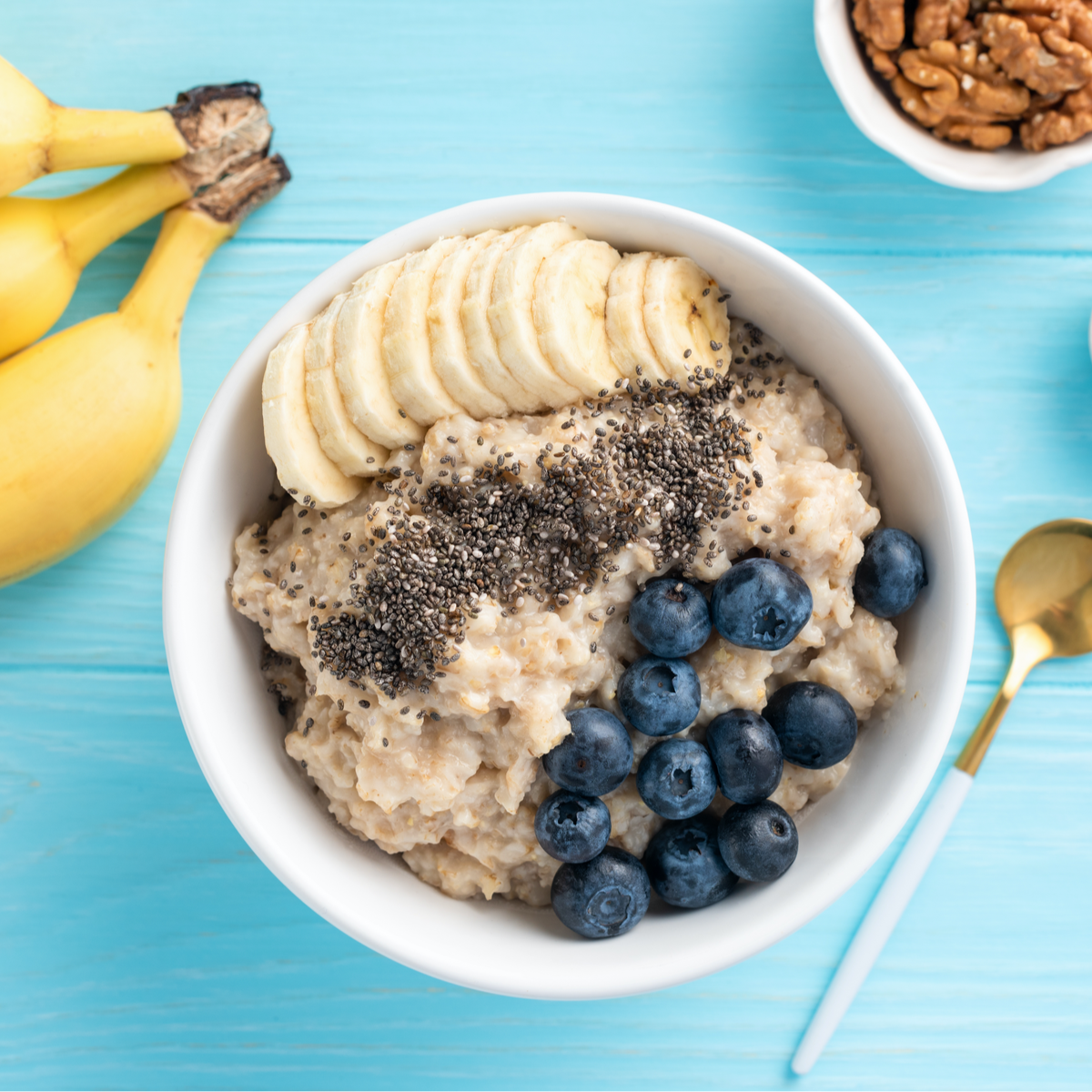
We are told that breastfeeding will be easy, blissful, and intoxicating. After all, it’s natural, right?
For some women, the experience matches the fairy tale. For many others, including yours truly, it most certainly did not.
For me, the pursuit of “liquid gold” for my three children was …messy. Yes, there was bliss, but there was also a steep pricetag, physically, mentally, emotionally, and more.
The current breastfeeding narrative is vastly disconnected from the realities of mothers like me. We expect ourselves — and other mothers — to endure limitless sacrifices for our little ones. To speak negatively about our experience is to complain, and be a bad mother. Even as I write this, I brace myself for judgment, and wonder if I deserve it.

The breastfeeding fairy tale leads mothers to feel that everyone else is happily nursing while they struggle to latch, reluctantly supplement an inadequate milk supply, and spend inordinate amounts of time awkwardly, uncomfortably hooked up to a pump.
I feel strongly that we need to have more open conversations about the realities of breastfeeding. By sharing my story, I hope to help others feel less alone, set realistic expectations, gain perspective, and recognize the sacrifices they make.
My Story
I entered motherhood as a confident, driven, goal-oriented, highly competitive woman. I had recently begun my career in cancer research after completing my PhD at Stanford, where I met my fellow Type A husband. In my spare time, I was a fitness fanatic and spin instructor. You get the picture. Motherhood was about to throw me some serious wrenches.
Being “the perfect mom” became one of my goals — one I assumed I could reach if I worked hard enough. I took it for granted that exclusive breastfeeding was part of being a perfect mom.
My sweet baby boy
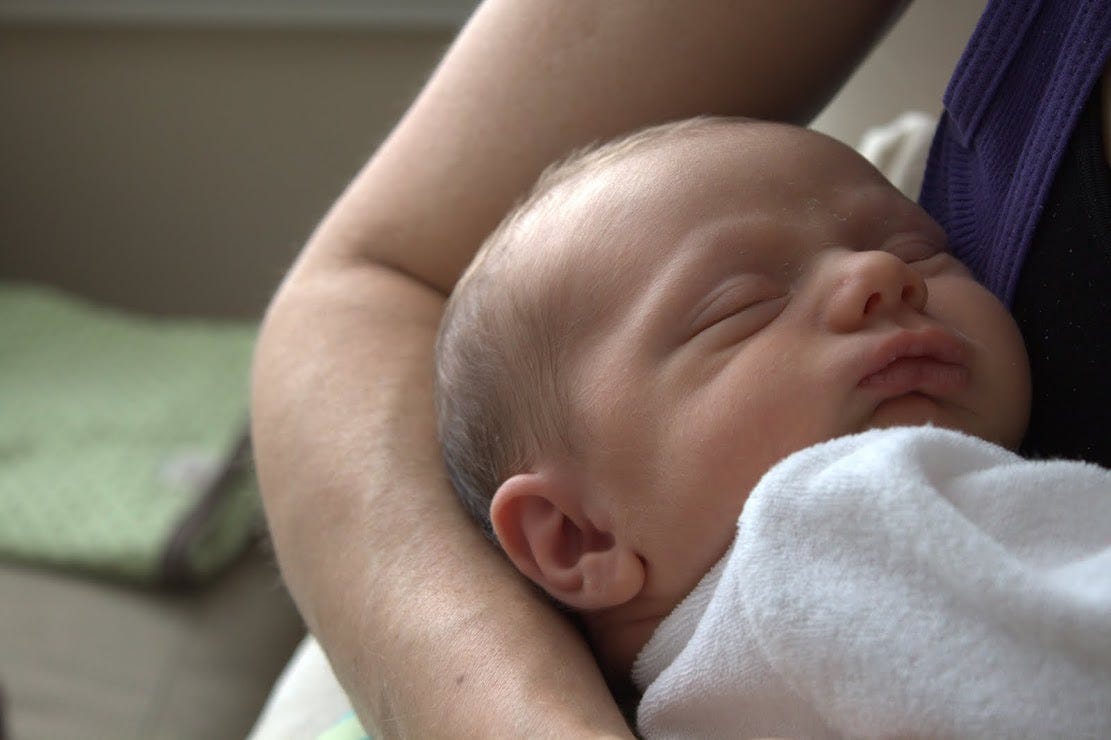
With my first child, breastfeeding was off to a stellar start. I was lucky to have a little hoover that latched well and a solid milk supply. I couldn’t help feeling proud when we attended our first nursing mommy group and my guy finished his feeding first, having downed an impressive amount of milk. He even happily took pumped milk from a bottle after a few months, and was able to bounce between bottle and breast.
Things went south quickly when I returned to work full time after four months. Now, providing breastmilk for my baby was as much about me and my pump as me and my little love. I would run to the Mother’s Room three times daily, strap on my hands-free pump and “relax” by browsing baby photos on my phone. I’d arrive home from work uncomfortably full with milk and would nearly lose my mind if my guy had just drunk a bottle, knowing this meant I’d need to pump — again — instead of nursing.
It wasn’t long before our nanny gently told me that the milk coming home wasn’t enough to fully satiate our guy, and urged me to supplement with formula. I initially resisted, but eventually gave in. She was right — the extra formula made my little one happier. On weekends, I adamently stuck to breastfeeding in order to keep my supply up, even though this meant I was on a very tight leash.
Although my rational brain told me that formula wasn’t harmful, I still felt a sense of inadequacy and guilt, especially when chatting with moms who happily declared that their babies had never tasted a drop of formula. We kept up breast and bottle feedings until the day my son turned one. I let myself call it quits and felt that I had done my duty.
Twins!!
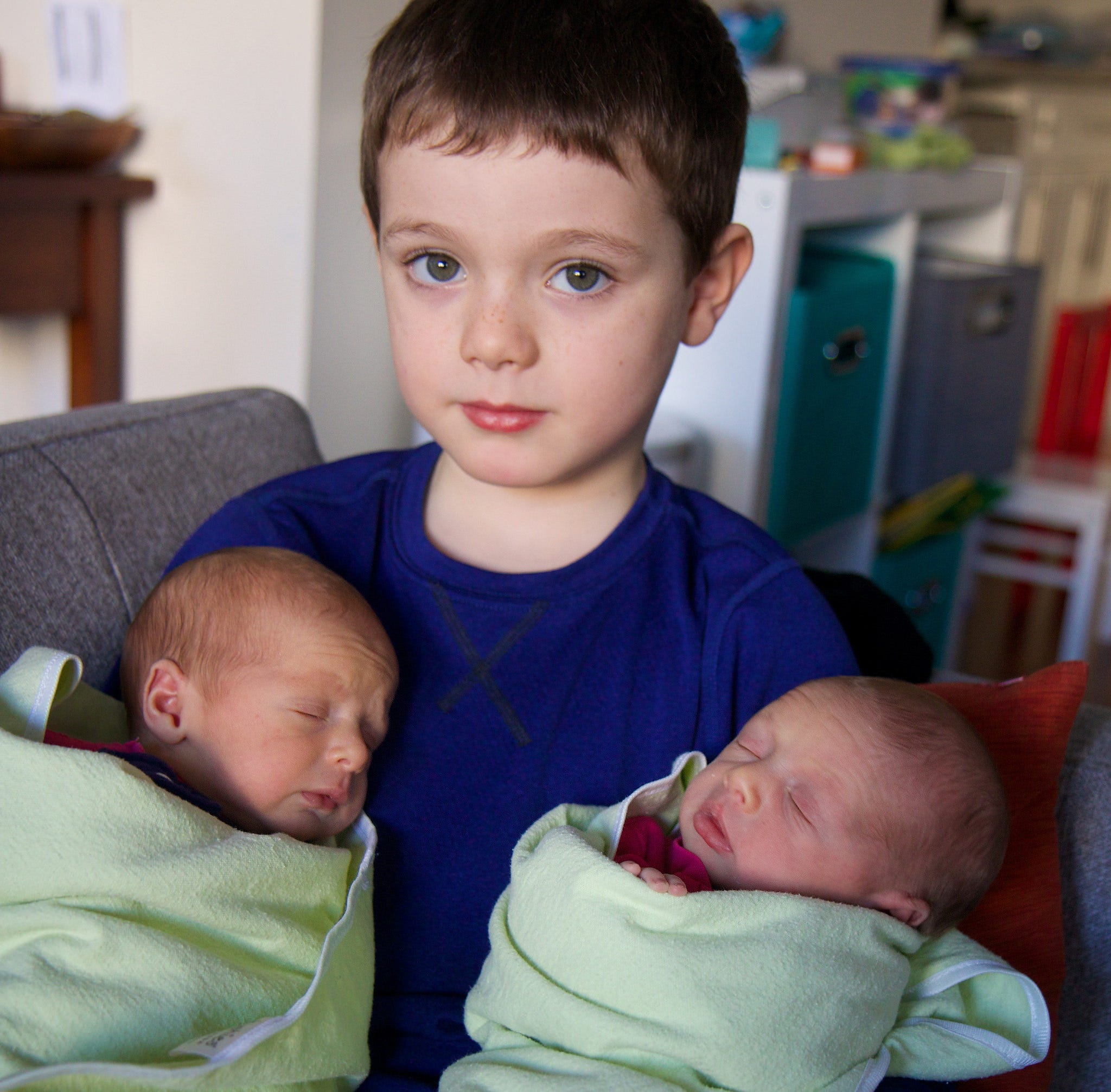
Four years later, we welcomed twin girls into our family and a similar story unfolded. Again, my breastfeeding experience was as much with an electric pump as it was with my babies, and I wrestled with feelings of inadequacy.
This time, instead of going back to work, I stayed home and fully immersed myself in feeding and caring for my little ones. I nursed my teeny twin girls with fierce determination, and was fortunate that there were no major barriers to breastfeeding.
I knew I wouldn’t be able to cope alone, so I begrudgingly took up pumping early in the game and my girls bounced well from bottle to breast. Yet, my milk supply wasn’t enough, so I sought help from a professional lactation consultant. She advised me to spread out my nursing sessions and increase my pumping in between and I diligently complied. At one point, my poor breasts were averaging twelve hours per day of suction. I began to feel a kinship with dairy cows and still feel badly for them to this day!
All this effort still wasn’t enough to fully feed my two babies, so we continued mixed feedings (breast milk and formula) until we hit the one year mark. When that day came, I felt like I had just completed a marathon.
The hidden costs of “breast of bust”
Now that I’ve exited the exhausting, hormonal days of early motherhood, I can see the toll that my obsession with “breast is best” took on me and others. The discomfort and guilt described above are just the tip of the iceberg.
The mental toll
Not being able to live up to my vision of “the perfect mom” left me feeling like I was failing. As I compulsively tracked the amount of formula we used daily, I was essentially measuring my mothering by how much breast milk I could provide.
I constantly felt trapped. I rarely left my babies for more than an hour or two, lest I be forced to pay for it with a pumping session.
It was easy to blame my lack of exclusive breastfeeding for any potential issues my twins faced. Thankfully, the twin who was sick (eg. with colds) more often happened to be the one who was a better nurser and got more breast milk than her sister. I can hardly imagine how guilty I would have felt if the reverse were true!
The physical toll
Being a new mother is exhausting and all-consuming. My dogged pursuit of breastmilk made it that much harder.
Even when I had help, I would set an alarm in the middle of the night to pump more milk and ensure my supply wouldn’t suffer. My girlfriend with twins of the same age did the same. A few months in, when we checked in with our pediatrician, I could barely hold myself together. She encouraged me to stop this madness, and assured me that my rest, and state of mind, were more important than a few more ounces of liquid gold. To her, I will be forever indebted.
There are no real breaks when your boobs are working full time. I remember the funny, yet not funny, story that took place when my son was just a few months old. As part of my sister in law’s post-wedding celebration in Belize, I joined other revellers on a lazy boat trip for several hours while the grandparents watched our precious guy. My breasts became so painfully engorged with milk that I jumped off the boat, and discreetly tried to learn how to self-express (pump the milk out with your hands!) into the ocean to get relief. The fish seemed quite interested and I wondered whether sharks liked human milk. I remember sprinting home from the boat and hoping against all hope that my son hadn’t just drank a bottle.
The toll on others
If you’ve ever pumped milk, you know what it really means to “cry over spilt milk”. My husband would sometimes accidentally leave out an unfinished bottle of expressed milk during a middle of the night shift, rather than return it to the fridge. The discovery of wasted liquid gold enraged me and could bring me to tears. I policed how much milk others fed my infants when I was out, asking them to be as frugal as possible, and getting upset if they gave more than I thought was needed. The entire household suffered from my anxiety.
The good news
To be clear, my infant feeding journeys weren’t horror shows of guilt, failure, and anxiety.
I have many fond memories of staring into two (or four) big blue eyes, and feeling the glow that comes from this being so close, and from fully meeting your child’s needs.
While it feels taboo to raise this, a forced shift from exclusive breastfeeding came with some silver linings. Embracing bottle feeding (whether expressed milk or formula), allowed others to pitch in, and share that special bond. Adding formula liberated me from the burden of having to pump to “earn” a solid chunk of baby-free time.
I can also now see that the challenges of motherhood have changed me for the better. They have humbled me, softened me, made me more empathetic, and allowed me to view things in shades of grey. I carry these lessons into all areas of my life.
My bottom line
Would I do things differently if an “oops” baby came along?
Yes, and no. Breastfeeding would still be my plan A, both because of that magical connection when things went well, and the immune benefits to baby. However, I’d put much less pressure on myself to pump incessantly if were unable to make enough milk or be there to nurse in person most of the time. I’d also try to let go of some of that mom-guilt. We are all doing our best.
What does the science say about breastfeeding? It offers real health benefits both for infants and their mothers, but it’s not a panacea. It’s just one of many choices that will shape your child’s future. Read more about the science of breastfeeding in my article.
My hope for you
Everyone’s breastfeeding story is unique. Some women truly adore breastfeeding and don’t experience the many challenges and costs that I did. The last thing I want to do is discourage women from trying breastfeeding.
My hope for this story is that it helps those who can relate to my struggles. I want you to know that you are not alone. I want to encourage you to open up about your struggles, and share them with others. You’ll find that you’re in good company. Perhaps most importatly, I encourage you not to be so hard on yourself. Many of us that have emerged from this crazy time wish we had done so.
To those of you who have made it to the other side, I hope you’ll join me in sharing your story, and in letting go of any lingering guilt that you didn’t do enough.
Parenting is a long journey, one that requires taking care of ourselves as well as our children. The sooner you give yourself permission to do this, and let go of being “the perfect mom”, the better.
Thanks!
This story was inspired by Prof Emily Oster and SciMoms who also strive to empower other moms make well-informed choices.


